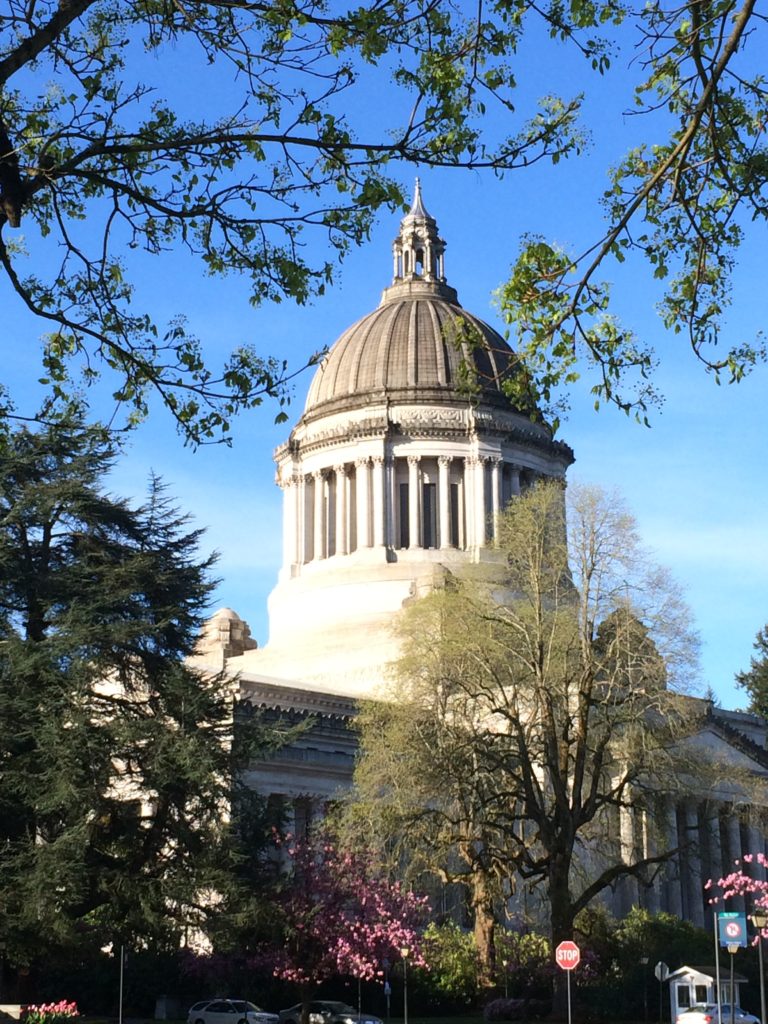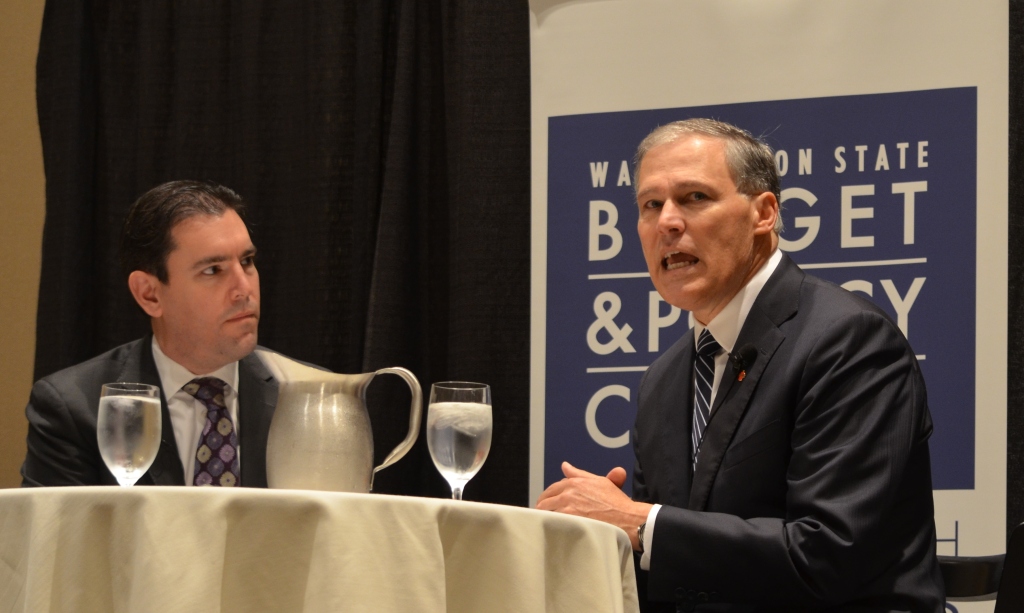
Joint statement from Seattle State Senators last night
David Frockt Reuven Carlyle Jamie Pedersen Rebecca Saldana
Marilyn Chase Bob Hasegawa
FOR IMMEDIATE RELEASE — July 20, 2017
Failure to pass capital budget will hit Seattle communities hard
OLYMPIA — Seattle area state senators warned today that the Senate’s failure to pass a capital budget will have dramatic effects on proposed investments for the Seattle area in K-12 education, community colleges, housing and health care, including mental health, among other critical needs.
Though capital budget projects around the state were agreed to by Democratic and Republican negotiators on Tuesday, Senate Republicans continued to insist that a separate water rights bill be resolved first before they would agree to vote on the budget and its corresponding bonds. As a result, the Legislature adjourned from its third special session with no action on this vital budget that historically makes critical investments in Washington’s future.
The negotiated $4 billion dollar budget would have created thousands of jobs in all parts of Washington, including throughout the Seattle area.
The budget provided state matching funds for over $1 billion in school construction projects already approved at the local level, including at least $35 million for schools in Seattle, $15 million for Lake Washington School District and $8 million for Edmonds School District among others. Additionally, the budget provided for hundreds of millions of dollars in buildings for the higher education system from community colleges in this region to the University of Washington. At UW, the budget provided matching funds for the Burke Museum as well as the new Population Health Science building, leveraging the UW’s partnership with the Gates Foundation to make Seattle the world leader in global health. There was an additional $40 million to UW for advanced materials and clean energy test beds, the Evans School’s Parrington Hall, and renovation of the Medical School’s Health Sciences T-Wing.
The agreed-upon budget would have provided over $100 million for the Housing Trust Fund, including investments in local housing projects through innovative modular housing and tiny home projects to a new workforce housing development in Mt. Baker. It contained a first-of-its-kind investment in Community Health Centers to address Washington’s ongoing dental health crisis for the poor, who often lack access to dentists and wind up in local emergency rooms.
The budget would have built on the state mental health system by providing new facilities in a number of regions where the lack of treatment options is acute and where the state is under court order to find remedies. It would have invested in critical water infrastructure and flood control projects east of the mountains while also providing record investments in stormwater controls and conservation and restoration in the Puget Sound area.
“Having negotiated for the Senate Democratic Caucus and having reached across the aisle to reach an agreement on all of the proposed expenditures, I am very disappointed that this budget agreement was essentially held hostage to a resolution of a separate water rights bill,” said Sen. David Frockt, D-Seattle. “I recognized that that was an important issue, but the fact is we just ended the longest session in Washington State history without a new biennial capital budget for the first time in decades. These two issues – the budget and the water rights bill — need to be delinked for the good of the entire state. That is what we are supposed to be doing. Regrettably, they weren’t delinked, even though there were solutions on the table that would have provided immediate relief for rural property owners to dig wells.”
“The governor has indicated an openness to a continued effort to resolve this impasse so that these critical investments in Washington can be made. I will continue to work with him and with both parties to get this budget passed and funded.” Said Frockt.
“The Senate Republicans have taken it upon themselves to deprive our community of important projects and economic development investments that our most vulnerable depend on,” said Sen. Rebecca Saldaña, D-Seattle. “From critical affordable housing for seniors and the homeless, to community and arts centers and parks, my constituents will feel the impact of the GOP’s inability to govern.”
“The failure of Senate Republican leadership to pass a capital budget is both disappointing and frustrating,” said Sen. Jamie Pedersen, D-Seattle. “This reckless decision will prevent investments in schools, community healthcare, and the arts and cost thousands of jobs.”
“The Republicans’ refusal to allow the passage of this budget, approved by all but one Republican in the other chamber, is nothing less than a dereliction of their duties as public servants,” said Sen. Maralyn Chase, D-Shoreline. “They have committed to a course of action that will harm Washingtonians in every corner of our state.”
“Our infrastructure and quality of life will deteriorate, and all Washingtonians will share the pain to varying degrees,” said Sen. Bob Hasegawa, D-Beacon Hill. “It doesn’t make sense to hold a $4 billion jobs and infrastructure bill hostage for the right of developers to trump other people’s senior water rights.”
“I remain deeply committed to resolving this crisis, and finding a path forward in the weeks and months ahead,” said Sen. Reuven Carlyle, D-Seattle “I was proud to have secured funding to reduce class sizes through school construction and am devastated the deal has fallen apart. I’m not giving up and will fight to secure these vital dollars. Our Seattle delegation is 100-percent on board to support a responsible capital investment budget.”
Had it passed, the budget would have funded these projects in in Saldaña’s 37th District:
$3 million for Othello Homesight;
$3 million for Aging in PACE;
$2 million for Valley City Recovery Place;
$1.5 million for the Amara Building;
$1.3 million for the Multicultural Community Center in Seattle;
$1.1 million to clean up Mt. Baker Properties for new housing;
$750,000 for the Georgetown Steam Plant Historic Steam Plant;
$737,000 for El Centro e la Raza;
$600,000 for the Filipino Community Innovation Center;
$520,000 to expand Pratt’s Campus
$400,000 for Washington Care Services;
$400,000 for Ethiopian Community Affordable Senior Housing;
$360,000 for the Cherry Street Fellowship;
$315,000 for Children’s Playgarden;
$250,000 to increase dental clinic capacity via the Seattle Indian Health Board;
$200,000 for the Seattle Indian Health Board; and
$141,000 for the Mount Baker Community Club.
In Pedersen’s 43rd District, the budget would have funded:
$1.855 million for the Country Doctor Community Health Centers;
$1.5 million in renovations to the Asian Art Museum;
$1.5 million for the Campaign for Town Hall;
$1.5 million in improvements to Hugo House;
$1.3 million for Neighborcare;
$1.1 million to the University YMCA;
$750,000 for upgrades to the 5th Avenue Theater;
$643,000 for preservation of the historic University Heights Center;
$600,000 for University YMCA;
$500,000 to purchase the Lambert House;
$491,000 for upgrades to the Paramount Theatre;
$475,000 for redevelopment of the Arboretum Waterfront Trail;
$354,000 for the Cornish Playhouse;
$257,000 for Lighthouse No. 83;
$257,000 for Phase Three rehabilitation of the Stimson-Green Mansion Building;
$75,000 for NW Choirs;
$29,000 to replace the deck of the MV Lotus; and
$21,000 for Nikkei Herigate.
In Chase’s 32nd District, the budget would have funded:
$50 million for the Dept. of Ecology for leaking tank model remedies at the Strickland Chevron in Lynnwood;
$37.7 million for the Edmonds Community College’s Science, Engineering, Technology Building;
$3.5 million for Allied Health, Science & Manufacturing in Shoreline;
$2.8 million for an addition to the Public Health Lab South Laboratory;
$2.5 million for an addition to a Newborn Screening Wing;
$2.2 million for the South Snohomish County Community Resource Center in Lynnwood; and
$650,000 to increase dental clinic capacity at International Community Health Services in Shoreline.
In Hasagawa’s 11th District, the budget would have funded:
$7.5 million via the Department of Ecology for Floodplains by Design;
$3.5 million in construction loans for the Georgetown Wet Weather Treatment Station;
$3.05 million for Sunset Neighborhood Park in Renton;
$698,000 for roof repairs to the Museum of Flight;
$500,000 to develop the Lake to Sound Trail;
$500,000 for Geriatric Diversion;
$412,000 for the Sunset Career Center in Renton;
$11 million for conservation projects; and
$2.6 million for Community and Technical College projects.
In Carlyle’s 36th District, the budget would have funded:
$1.5 million for improvements to the Seattle Opera at the Center;
$900,000 for improvements to Interbay PDAC;
$400,000 in improvements to the Seattle Aquarium;
$258,000 for renovations to the PONCHO Forum;
$167,000 in improvements to the Millionair Club;
$65,000 in improvements to the Seattle Opera; and
$30,000 for renewal of the lower Yamasaki Courtyard.
In Frockt’s 46th District, the budget would have funded:
$2 million for renovations at the Magnuson Community Center;
$1.2 million for Lyon Creek Fish Barrier Removal at Lake Forest Park;
$250,000 for improvements to Moorlands Park in Kenmore;
$250,000 for improvement to the Kenmore Public Boathouse in Kenmore; and
$75,000 for improvements to the St. Edward State Park Environmental Learning Center.
###
A list of all statewide and local capital budget projects is available upon request.
For information: Rick Manugian, Senate Democratic Communications, 360-786-7569



